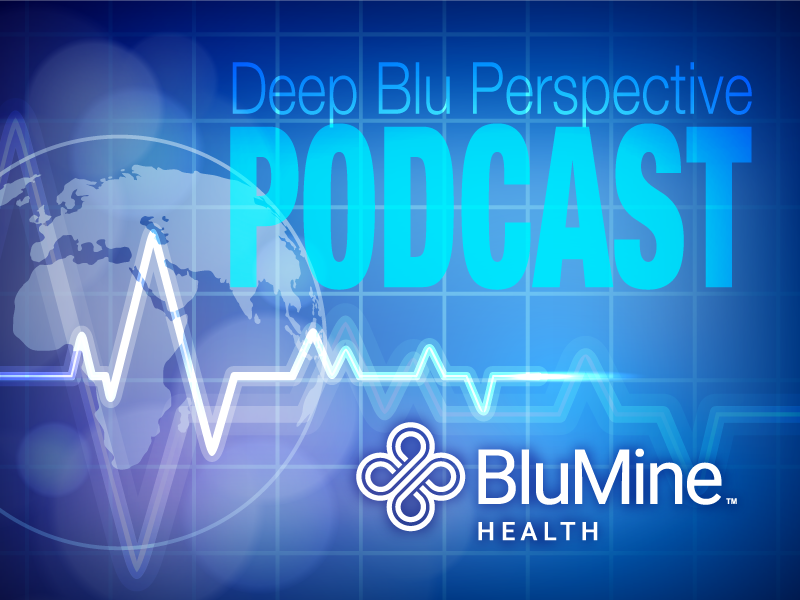
Reduce Anxiety
April 20, 2019Commonwealth Journal
April 28, 2019Diabetes

WHAT YOU SHOULD KNOW ABOUT DIABETES
Diabetes Mellitus (DM), commonly known as diabetes, is caused by a group of metabolic disorders characterized by high blood sugar levels that extend over prolonged periods of time. Plainly speaking, diabetes is a disease that prevents your body from properly using the energy from the food you eat. Symptoms of high blood sugar include frequent urination, increased thirst, and increased hunger. If left untreated, diabetes can cause many complications.
The most important thing to know about diabetes is that the condition can be managed by you personally with the aide of your healthcare provider.

3 MOST COMMON TYPES OF DIABETES
1) TYPE 1 - usually diagnosed in children and young adults. Type 1 diabetes accounts for about 10% of all diabetes cases. In TYPE 1 diabetes, the body does not produce insulin. Insulin is a hormone or protein the body must have to move glucose from the bloodstream into the body's cells. With it, our body is able to break down the carbohydrates we eat into blood sugar which our body uses for its energy.
2) TYPE 2 - most common form of diabetes and most often diagnosed in older adults. In TYPE 2 diabetes, the body does make insulin. However, the cells in our body cannot respond or absorb the insulin adequately. The causes are not fully understood by researchers, scientists or doctors. What they all agree on is that genetic makeup, age, excess weight, and inactivity do contribute to one's development of TYPE 2 diabetes.
3) GESTATIONAL - this form of diabetes can appear during pregnancy only and must be treated immediately. It is a scary diagnosis for a young mother because it can indicate a high risk for TYPE 2 diabetes later in life.
While all forms of diabetes are serious conditions to deal with, TYPE 1 diabetes is by far the worse. TYPE 1 can be controlled to a certain extent, but it cannot be completely cured. TYPE 2 diabetes can be managed and completely reversed by following a good nutritional program, increased physical activity and the use of professionally prescribed medications. And, GESTATIONAL diabetes is most often temporary.
If you experience any of the following "WARNING SIGNS" of diabetes that appear on your skin, it is time to visit one of our BluMine Health clinics where you can be seen by a healthcare professional.
- Yellow, reddish or brown patches on your skin - the look is similar to a group of pimples.
- Hard, thickening skin - usually noticed on fingers or the back of your hands first but can spread to forearms, upper arms, back and shoulders.
- Darker areas of skin that feel like velvet - usually appear on the creases in the neck first.
- Blisters - rare, but may suddenly appear on the skin as one large blister or a patch of smaller blisters, or both.
- Skin infections - this condition may manifest in a number of different ways: hot swollen skin that is painful, dry itchy rash (scaly skin) or it may be a white discharge. The skin infection may occur on any part of your body.
- Open sores and wounds - extended periods of high levels of blood sugar can lead to poor blood circulation and also cause nerve damage which inhibits your body's ability to heal wounds. These open sores or wounds are commonly referred to as diabetic ulcers.
- Skin spots - brown lines on the shin's skin that causes a slight impression, similar to age spots. Unlike age spots, shin spots fade over periods of time, usually 18 - 24 months. They can be recurring.
- Skin tags - small skin growth that hang - usually on the eyelids, neck, armpit or groin.

PREVENTION IS YOUR BEST BET AND IT IS BASICALLY BASED ON YOUR LIFESTYLE
There are two main issues to look at for a healthier lifestyle: EXERCISE and DIET.
EXERCISE - There are so many benefits to regular physical activity. Exercise can help you to lose extra weight, lower your blood sugar, and boost your body's sensitivity to insulin which helps keep your blood sugar within a normal range (fasting blood sugar should be under 100). Insulin is the hormone that is produced naturally by our bodies and converts sugar to a form that can be utilized by our body's cells to produce energy.
DIET - Avoid consuming too many carbohydrates because they have the greatest effect on your blood sugar. Food items like bread, pasta, corn, cereal, potatoes, processed foods/fast foods and sugar should be eaten in moderation because they are so high in "carbs." Instead your diet should be high in fiber, whole grain foods, fruits and vegetables. Also avoid fad diets and make healthier food choices.
DIABETES OR PREDIABETIC conditions do not always cause obvious symptoms. To be on the safe side, we recommend you consult with your doctor or nurse at BluMine Health if you feel like you are at risk. If someone else in your family has been diagnosed with diabetes, it is more likely that you could be too. Don't delay. PREVENTION is paramount!
FOR MORE INFORMATION VISIT www.bluminehealth.com or email wellness@bluminehealth.com

